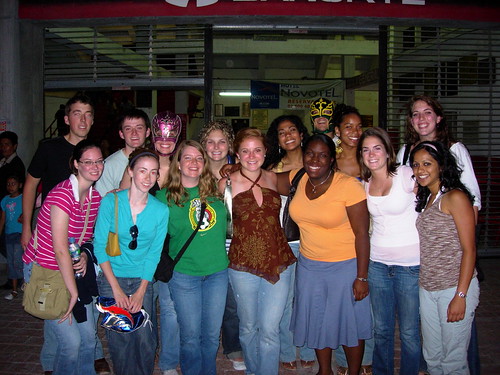
It appears the Texas Education Agency has ordered the closing of my former high school due to unacceptable academic standards and progress.
My initial reaction was one of disappointment. The first year that I attended was the first year that mandatory busing was not used to integrate the school. Instead, they opened a Liberal Arts Academy, which has since been moved to another East Side campus.
Ironically (or perhaps not so ironically), my freshman year was also the first year that students from my neighborhood would be bused to Johnston, 10 miles away. Though another high school was geographically closer, it was just on the West side of I-35, which meant it was a world away. I always thought that it was strange that they ended busing for integration only to bus a bunch of minority kids from a low income area to a low income area on the East Side, rather than busing us to a school on the West side. But I digress….
When I attend Johnston, the dropout and retention rates were high, though test scores, including those for minority students, were not too bad. The high dropout rates were most evident at the football pep rallies, where the freshman always won the spirit stick for yelling the loudest. The freshman class was always 800+; my graduation class had just over 200–at least 70 of them high achieving Academy kids. It seems the test scores were pretty bad back then, too.
However, once they moved the LAA to Johnston, even voluntary integration ended at Johnston. The percentage of white students fell from 20% when I was a Junior in 1991 to 1.9% in 2005. Some of that drop was due to the opening of a new high school in 2000 (?) to serve students in Southeast Austin, so they were no longer bused to Johnston as I was. Since I graduated in 1992, this campus has seen a steady stream of new school administrators, almost every year.
I’m still annoyed that the AISD abandoned Johnston and ended integration–which surely made a resource-poor school even worse off. (I remember that teachers would put plastic garbage cans in the hall to catch water in the numerous places that the roof leaked…) On the other hand, Johnston had failed to serve its core population for a long time, and in some ways, the ‘integration’–voluntary or otherwise–only hid, by inflating test scores and other school success indicators, the real failure of the school and the school district to educate and prepare kids on Austin’s East Side.
So if current Johnston students are spread far and wide throughout Austin high schools, I may be saddened by the closing of my old school, but at least I’ll be hopeful that those students will get the attention and resources they deserve elsewhere.




